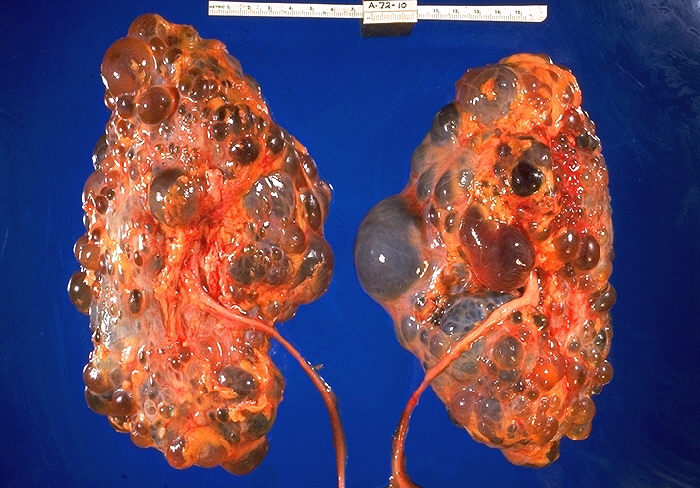The kidneys filter wastes and extra fluid from the blood to form urine. They also regulate certain important substances in the body.
When cysts form in the kidneys, they are filled with fluid. Formation of many PKD cysts can result to enlargement of the kidneys while replacing much of the normal structure. This leads to reduced kidney function leading to kidney failure.
Two major inherited forms of PKD exist: the more common ADPKD or Autosomal Dominant PKD affecting approximately 1 in 500 and does not skip a generation, and ARPKD or Autosomal Recessive PKD.
About 9 out of 10 of PKD cases are autosomal dominant PKD.
Patients with PKD may have the following manifestations or clinical features:
- urinary tract infections (UTIs) —specifically, in the kidney cysts which can become recurrent
- hematuria—blood in the urine
- liver and pancreatic cysts
- abnormal heart valves
- elevated or high blood pressure
- renal or kidney stones
- aneurysms—bulges in the walls of blood vessels—in the brain
- diverticulosis—small pouches bulge outward through the colon
- pain - Pain in the area of the kidneys can be caused by cyst infection, bleeding into cysts, kidney stone, or stretching of the fibrous tissue around the kidney with cyst growth.
Currently, there is no cure for PKD itself although some medications addressing associated problems could ease symptoms, slow down kidney damage and prolongs life.
For more information on PKD visit the following pages which were used as references for this blogpage:
PKD Foundation and National Kidney and Urologic Diseases Information Clearinghouse
Related Reading References:





